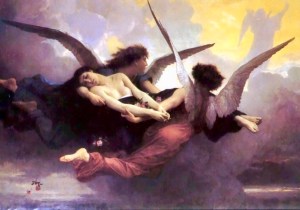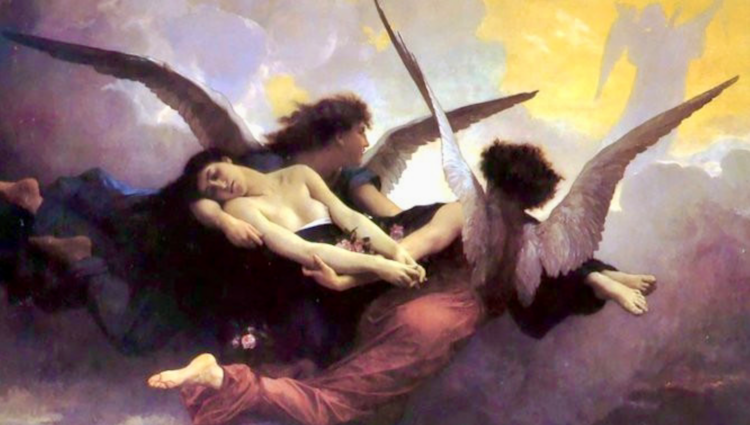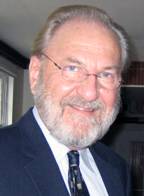Stan Mattson was a Christian culture warrior who has now fought his last battle. He has died but he is not dead. He lives not merely in the minds and hearts of those who knew and loved him but in the “heaven-haven of the Reward.”
It is a little more than three years since the death of Walter Hooper, the friend and champion of C. S. Lewis. In the tribute to him that I wrote for the Imaginative Conservative at that time, I celebrated “the life and legacy of this remarkable man”. Now, three years later, it is my joyfully solemn honour to pay tribute to the remarkable life and legacy of another great friend and champion of C. S. Lewis who died in the early hours of January 10.
Stan Mattson was not Lewis’s friend in the same way that Walter Hooper was. He never knew Lewis personally and never met him. And yet, as the President and Founder of the C.S. Lewis Foundation, Dr. Mattson did more than anyone other than Walter Hooper himself to champion Lewis’s cause and to guard and guide his legacy.
Dr. Mattson’s journey with Lewis began in 1972, nine years after Lewis’s death. As a 35-year-old assistant professor of history at Gordon College in Massachusetts, he organized a retreat of likeminded Christian scholars at Covenant Presbyterian Church in Simsbury, Connecticut, to address the challenges faced by Christians in an increasingly hostile and secular academic culture. The consensus of those who attended the retreat was that Dr. Mattson should organize an interdisciplinary and interdenominational “mere Christian” community of higher learning. This would become the C. S. Lewis Foundation, which was formally incorporated in 1986. In the following year, at a five-day retreat conference and St. Andrew’s Priory (now Abbey), Dr. Mattson met with others, including the philosopher Dallas Willard and the theologian Paul Ford, to frame the Foundation’s “mere Christian” statement of faith.
From 1988 onwards, the CSL Foundation began running its celebrated triennial Oxbridge Conferences. Varying in length from nine to fourteen days, these are held in Oxford and Cambridge, the two university cities in which Lewis taught. It was at these conferences and at other conferences held by the CSL Foundation in the United States that Stan Mattson and I became friends. I spoke at two or possibly three of the Oxbridge Conferences and at least three conferences held at a woodland retreat in Texas. Our time together at these events afforded us the opportunity to get to know each other. His fortitude in faith and his love for Lewis were inspirational and contagious.
It was at the Oxbridge Conference in August 2005 that I heard the news that my father had been rushed to hospital and was likely to die. I informed Stan and told him that I would need to cancel my scheduled talk so that I could be at my father’s bedside. As I drove from Cambridge the short distance to the hospital in Essex, I thanked God that, in His Providence, he had brought me from the United States to my native land at this crucial time. My journey to my father’s bedside, only about sixty miles from Cambridge, took a little over an hour. What an unmitigated blessing! The other great blessing was that Stan used the collective power of prayer of those attending the conference to gain supernatural spiritual assistance for my father as he prepared to cross the threshold from this vale of tears into the arms of Our Lord. The knowledge that so many good and faithful servants of Christ were praying for my father in his final moments was a great comfort. I have no doubt that my father’s holy and peaceful death was assisted by the chorus of prayer that surrounded him. I also have no doubt that Stan was accompanied by a chorus of prayer from the thousands of people he had inspired over the years as he made his own journey across the threshold into His Father’s House.
The words with which I concluded my tribute to Walter Hooper are as applicable to Stan Mattson: “He will be missed but we can hardly feel very sorry for him. On the contrary, we can well believe that he is now once more with C. S. Lewis, whom he had served most faithfully for so many years.”
As for where they are exactly, we might be content to let Lewis’s concluding words in The Last Battle be our guiding light: [W]e can most truly say that they … lived happily ever after. But for them it was only the beginning of the real story. All their life in this world and all their adventures in Narnia had only been the cover and the title page: now at last they were beginning Chapter One of the Great Story which no one on earth has read: which goes on forever: in which every chapter is better than the one before.
 Stan Mattson was a Christian culture warrior who has now fought his last battle. He has died but he is not dead. He lives not merely in the minds and hearts of those who knew and loved him but in the “heaven-haven of the Reward”, to quote the poet, Gerard Manely Hopkins. As for death, its defeat is described in the opening and closing words of John Donne’s sonnet: “Death be not proud … One short sleep past, we wake eternally / And death shall be no more; Death, thou shalt die.”
Stan Mattson was a Christian culture warrior who has now fought his last battle. He has died but he is not dead. He lives not merely in the minds and hearts of those who knew and loved him but in the “heaven-haven of the Reward”, to quote the poet, Gerard Manely Hopkins. As for death, its defeat is described in the opening and closing words of John Donne’s sonnet: “Death be not proud … One short sleep past, we wake eternally / And death shall be no more; Death, thou shalt die.”
As for our own closing words, let them be the words spoken in prayer by Horatio over the body of Hamlet: “May flights of angels sing him to his rest.”
The Imaginative Conservative applies the principle of appreciation to the discussion of culture and politics—we approach dialogue with magnanimity rather than with mere civility. Will you help us remain a refreshing oasis in the increasingly contentious arena of modern discourse? Please consider donating now.
The featured image is “A Soul Carried to Heaven,” by William-Adolphe Bouguereau, and is in the public domain, courtesy of Wikimedia Commons. The photograph of Stan Mattson is courtesy of the C.S. Lewis Foundation.



